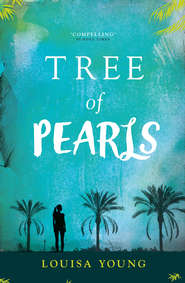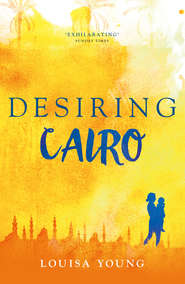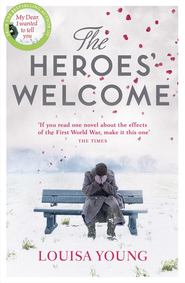По всем вопросам обращайтесь на: info@litportal.ru
(©) 2003-2024.
✖
You Left Early: A True Story of Love and Alcohol
Настройки чтения
Размер шрифта
Высота строк
Поля
‘Thank you,’ I said. ‘I think it would.’
That evening my father rang. ‘Your mother told me about the foot,’ he said. ‘We’re looking after it. We thought we might plant it in the garden, see if it might grow?’
The child thought that was a good idea. ‘It could grow a tree with little new feet on it. Then we’d have lots of feet if we needed them.’
*
The wedding was in August. He invited me the night before; I didn’t go. The wedding albums are under the piano. I don’t look at them. I’ve been told it started well and they were happy. At the time, of course he didn’t confide in me. He was busy elsewhere.
I went to dinner once. Robert showed me round: his music room, his family grandfather clock in the hall. I felt like a pair of sticks walking, dry and pointless and about to snap. In 1998 their son was born. Robert brought him over sometimes, in his buggy. He adored his child; absolutely adored him. He’d be jiggling the buggy with his foot, chatting and joking with him while trying to smoke in the opposite direction. He was working hard and, the times I did see him, drinking a lot. His wife always looked great.
Once I went into our local Nepalese restaurant to pick up a takeaway. It was known as the Office, for the time Robert spent working in there – and there he was, working, at a back table. I hadn’t seen him for perhaps a year or more. He looked up, gestured to a beer on the table, and said: ‘You took yer time. That’s for you—’
If I don’t say much about the marriage, I mean no disrespect – quite the contrary. I’m not ignoring it, denigrating it, or writing it out of history. But I wasn’t there. I don’t know about it, and it’s not my business. They married; they had a child. This story jumps three years while they are doing that.
Chapter Nine (#ulink_38659730-f97a-5e32-83d2-9c7de87361b5)
London, Wiltshire, 2000
He arrived on the front doorstep on a Sunday afternoon, while I was having lunch in the back garden with Swift and David.
‘How are you?’ I said. He looked terrible: distraught, humbled, sarcastic, confused, angry.
‘Not great,’ he said. ‘She’s kicked me out.’
‘God,’ I said. ‘When?’
‘Ten minutes ago,’ he said. His house was ten minutes from mine.
‘Where will you stay?’ I asked.
‘Well,’ he said.
So he moved in.
‘Don’t you need stuff from, um, home?’ I asked, that night.
‘Have you got a razor?’ he said.
‘Yeah.’
‘Pelléas and Mélisande?’
‘Er – Debussy or Schoenberg?’
‘That’s my girl,’ he said. ‘Debussy.’
‘Yes.’
‘OK then,’ he said.
‘Clothes?’ I wondered.
‘No,’ he said. And looked at me.
‘Fuck sake,’ I said.
‘Oh come on,’ he said. ‘I’m not married any more. Hardly, anyway.’ So his capacity for entirely inappropriate jokes was intact within his distress.
‘Certainly not,’ I said – a phrase of his. God, I’d already picked it up.
The following week I came back from work to find him in the kitchen with all kinds of fancy mushrooms, talking quickly about a risotto he wanted to make for me. I wasn’t hungry but I let him make it. The chopping and the smells soothed him. Garlic and warm olive oil, the crunch of salt, the chicken bones boiling up into broth, the dim musk of the bay leaf, the warmth. I left him to it; and went to read.
He brought me a glass of wine. White, smoky, just cold enough.
‘It’s beautiful, isn’t it?’ he said. ‘I’m not going to have one. Like you asked.’
When I smelt burning I went into the kitchen.
‘I’ve fucked it up,’ he said. ‘I’ll go and get an Indian.’ He left – swiftly, windily, before I could take in the situation. I turned off the flame under the pan, and went back to my book. It was nice to read without him coming in for a chat, ignoring the fact I was actually doing something.
I read two chapters. Three. Peace and quiet. Lovely.
It doesn’t take that long to get a curry.
Even as I thought ‘Should I worry?’ I realised that yes, of course I should.
He didn’t come back that night.
He was nocturnal. He could be at any one of a dozen regular haunts. Many of them I had haunted with him, in days gone by. Was I meant to go out and trawl them, asking barmen whether he’d been in, finding him and dragging him out by his ear, demanding that he get in the house and eat his supper, like some fishwife?
Or ring hospitals?
Or police stations?
I couldn’t sleep, overslept the next day, was late to work (I was writing a book about the cultural history of the human heart), rang my landline every hour. He didn’t answer my phone anyway. One of his little acts of respect – unnecessary, often unhelpful, but somehow sweet. One of the many ways in which he gave what he wanted to give, not what you wanted to be given. He didn’t answer any phone, basically. He felt powerless not knowing who was there, and what they might want.
The following evening, when I came in, he was smoking a cigarette in the back yard, staring through the kitchen door at a pan of risotto.
‘What time do you call this?’ he cried, throwing down the cigarette. ‘Dinner’s ready. Sorry about the slight delay. You just need to stir it and add the parmesan.’ He was stone sober, pale, clean. He looked exceptionally Northern, like a piece of granite. ‘Get the plates,’ he said.
Seeing that he was all right, I was angry.
‘A word,’ I said. ‘Where were you? While you’re staying here, don’t walk out and just stay out overnight. And don’t throw your fag ends in my garden. And don’t tell me what to do.’
‘That’s about twenty-five words,’ he said.
‘Is that the important bit of what I just said? Or a fatuous diversion? I’m leading a normal life here. Courtesy, and kindness.’











